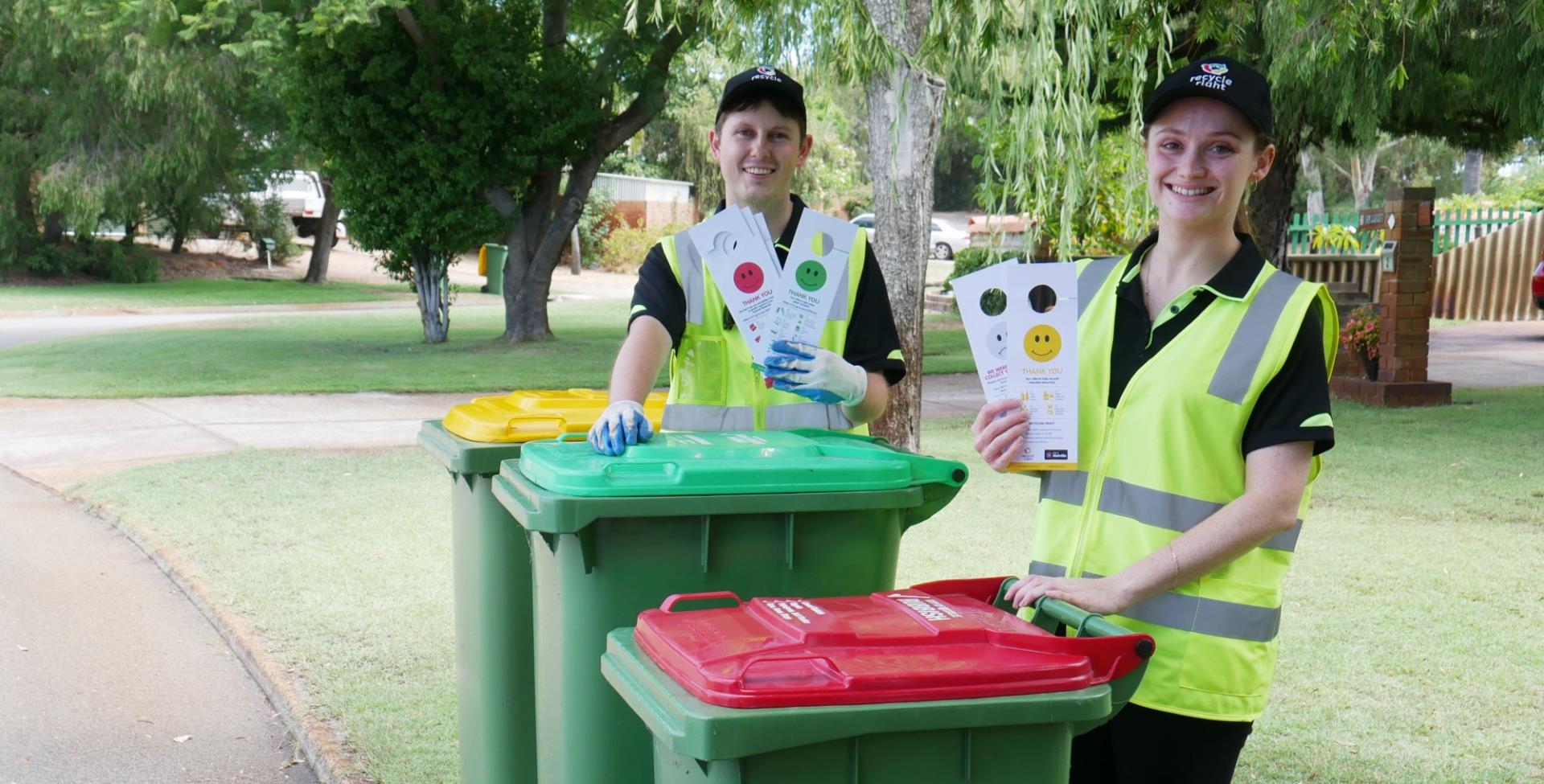Bin Tagging Program

The Resource Recovery Group undertakes a bin tagging program in selected households across the region to help educate residents to ‘recycle right’.
The program is part of the rollout of the new 3-bin FOGO system that was implemented during 2019 in the City of Melville, City of Fremantle and Town of East Fremantle. Inspection of the 2-bin system in some of the City of Fremantle’s multi-unit developments and apartments will also be undertaken to gain baseline data.
The Resource Recovery Group undertakes the education program on behalf of the three Councils, with funding support through the Waste Avoidance and Resource Recovery Account, administered by the Waste Authority.
The program aims to educate residents about how to correctly use their kerbside bins and provide individual feedback to improve their efforts at home.
How does it work?
Areas chosen for bin tagging are both targeted and chosen at random, to ensure feedback to households is fair and consistent.
Community Waste Education Officers work in pairs by checking for contamination (wrong items in the bin), such as recyclables in the General Waste bin, or contamination in the Recycling bins and Food Organics/Garden Organics (FOGO) bins.
Following inspection, they place a ‘happy’ or ‘sad’ tag on the handle of the bin providing feedback about how well residents are using the bins or what can be improved. This feedback can help to clarify any misconceptions or confusion residents may have about the new bin system and offers positive reinforcement to households sorting their waste correctly. Officers will not be ‘rummaging’ through the bins, rather they will be aiming to gain a general overview of how the household is sorting their waste and will not be looking at any resident’s personal information.
Data recorded to understand key issues
Officers will record details of any contamination present in each bin and the level of contamination for each inspection. The data will be analysed as a whole and results reported on a community rather than individual scale. This information is important for us to understand the key issues that need to be focused on when educating the community.
What if I do it wrong?
The program will focus on education rather than enforcement.
In a small number of cases where residents’ bins show repeated high contamination following several visits, the bin will not be collected. A tag informing the resident that the bin was not able to be collected will be attached to the bin, listing the contaminants and requesting they be removed. The bin will also be taped shut to let waste truck drivers know not to empty it.
What if I do it right?
Incentives will be offered for households that consistently ‘recycle right’ with no contamination, as well as households that show the most improvement.
More information
Luke Stewart
Communications & Marketing Manager, Resource Recovery Group
Phone: 9329 2700 | Email